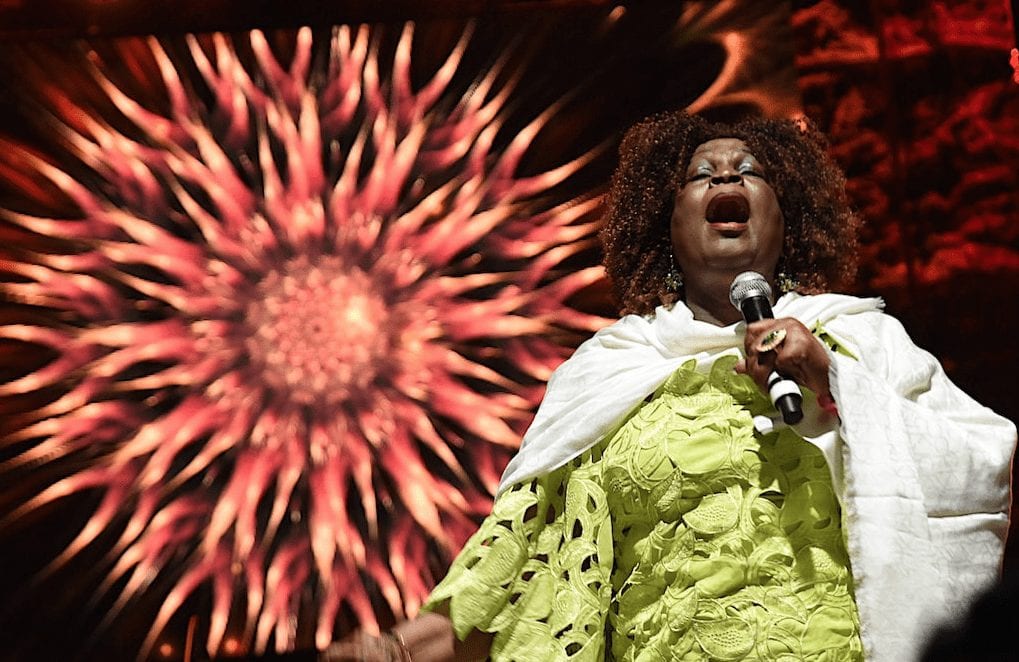
Can the Changing Cannabis Culture Breathe New Life Into the Event and the Community Center Behind It?
Reggae on the River’s roots run deep in Northern California. What started in the early 1980s as a rebuilding fundraiser for The Mateel Community Center in Redway, California has become one of the longest running, most well-known reggae festivals in the world. Rising to its heights throughout the 1990s and early 2000s, Reggae, as it is affectionately referred to by locals, continues to draw countless cannabis and music lovers to the Emerald Triangle year-after-year.
 While Humboldt’s well-known high grade helps to attract many musicians and attendees annually, Reggae on the River has also helped to show people worldwide what the region has to offer, particularly when it comes to cannabis and culture.
While Humboldt’s well-known high grade helps to attract many musicians and attendees annually, Reggae on the River has also helped to show people worldwide what the region has to offer, particularly when it comes to cannabis and culture.
When speaking with General Manager, Justin Crellin, about the ways that cannabis has contributed to the festival’s success over the years, he said, “It is an iconic event for Humboldt County and brings much needed diversity to our rural area,” he added. “People come from all over the world to experience this — and to share our local culture — and I think the “Humboldt County experience” has played a large role in the festival’s popularity.”
“Cannabis has always been part of the mystique of Reggae on the River, and is part of the draw that makes Humboldt County a unique tourist destination,” Crellin explained, “[…] Reggae music and Rastafarian culture have deep connections to cannabis, and this is something that Humboldt County shares, along with natural living and back-to-the-land ideals that made Reggae music such a perfect fit for our community/culture.”
Loved and loathed by many a local, Reggae has always been about much more than the music. Long before the days of medical legalization and the impending reality of a legal recreational market, Reggae on the River was one of the few spaces where like-minded people could come together, blaze up openly and unite over their shared love of music and the herb. Unified together in a place where weed was accepted and celebrated, a strong sense of camaraderie and community was created.
This sense of community, is perhaps why this year’s startlingly low local attendance and profit numbers are especially disheartening. After suffering a tough fiscal loss on the event, The Mateel now finds itself struggling; the changing cannabis culture, community and industry that have helped to shape and sustain both it and Reggae can no longer provide the necessary financial stability.
Legalization, however, may bring cannabis to the forefront of Reggae and could lead to more promising times ahead.
Long gone are the days of the guys standing silently in the shadows with their big buds on Bob Marley Boulevard. Gone also are the days when the event would sell out months in advance — before online ticket sales existed and before a competitive West Coast festival market emerged. One thing other shows don’t have, however, is the enticement of the good old internationally known Humboldt greenery.
Cannabis in all its glory is now on full display at Reggae on the River. With over a dozen industry related sponsors including farms, collectives, and nutrient companies, there was no shortage of cannabis related products present this year, as various sponsors offered all types of schwag, samples and information. True Humboldt also provided a 215 dab bar backstage, and supplied waxes, rosins and flowers throughout the weekend to artists and card holding concertgoers.
Cannabusiness related collaborations could create exciting opportunities for The Mateel and other financially strapped events and organizations. This can benefit both communities, Crellin stated, “Reggae has a real opportunity to better incorporate cannabis culture into the fabric of the event and also expand the event’s appeal by doing so.”
“There is a lot of potential here, and hopefully, deeper interest from our local cannabis community will emerge as a means to finance the festival beyond simple sponsorship,” he added. “It would take a collection of farms who see the value of Reggae on the River in branding/showcasing Humboldt cannabis on an international stage to join forces.” Unfortunately, costly compliance regulations may prevent farms and other small industry businesses from having disposable and “donatable” income.
With this uncharted territory comes both uncertainty and excitement. Soon, music festivals and events like Reggae will have the ability to incorporate cannabusiness into their sponsorship programs, and offer cannabis experience-based ticket options. While permits for this have yet to be created, there is hope on the legalization horizon for the future of Reggae.
To learn more about Reggae on the River, The Mateel Community and upcoming shows and events, visit them on Facebook @mateel or on their website at http://mateel.org/
Written by Melody Hayhurst



Leave a Reply